- Home
- Linda Lael Miller
CAROLINE AND THE RAIDER Page 5
CAROLINE AND THE RAIDER Read online
Page 5
She did not flinch or look away. “Men like you, Mr. Hayes?”
“Yes. Men like me. If I had a daughter, and she walked right into a saloon the way you did yesterday, I’d turn her over my knee. As for coming to a man’s camp, all alone—” He paused and shook his head, marveling.
Color rushed up Caroline’s graceful neck to glow in her cheeks. She started to stand, but he immediately caught hold of her arm and prevented her escape.
“Are you alone in the world, Caroline? Except for Flynn, I mean?”
Tears glistened in Caroline’s eyes, but Guthrie had to give her credit. She blinked them back. “No. I have two guardians, Miss Phoebe and Miss Ethel Maitland. They adopted me when I was eight and I love them very much.”
Guthrie let his elbows rest on his knees and propped his chin on intertwined fingers. “Why did you need adopting when you were eight?” he asked. His interest was genuine.
Caroline sighed. “I lived in Chicago, with my mother and my two sisters, in my grandmother’s house. Grandma died when I was seven, and we had to move to a flat because there wasn’t any money. Mama—drank a little. She tried working in a shoe factory, but mostly she couldn’t concentrate.” Caroline hesitated while she searched his face for a moment, as if to determine whether or not it was safe to go on. “After a bit, Mama started bringing home different men.” Her eyes skirted Guthrie’s steady gaze for a moment, then returned. “They’d g-give her money, and things would be all right for a time. But then the soldier came along—Mr. Harrington.”
Guthrie nodded to encourage her to go on.
“Mr. Harrington was a sergeant, I think, and he wasn’t fond of children. It didn’t take him long to persuade Mama that Lily and Emma and I would be better off taking our chances on an orphan train than growing up in Chicago.” She looked down at her fingers, which were locked together and white at the knuckles. “Maybe he was right. We probably would have ended up in the factories. Or worse.”
Guthrie reached out and closed one hand over both of hers, wishing he could have protected her somehow. “Your guardians didn’t adopt Lily and Emma, too?”
Caroline bit her lower lip for a moment, clearly battling some old and well-worn grief, and shook her head. “They sent a neighbor to fetch them a girl from the train, because they wanted a companion to travel west with them. The pity of it is, Miss Phoebe and Miss Ethel are the kindest, most generous women in the world. I think they probably would have taken in my sisters, too, if they’d been at the station to see them.”
He moved his thumb over the back of her hand, wanting to take her into his arms and hold her. The more Guthrie heard, the better he understood her desperate need to believe in Seaton Flynn. It probably seemed to her that the lawyer could offer her a home along with all the things she’d missed as a little girl.
“Did you manage to stay in touch with Lily and Emma?” he asked.
Caroline shook her head. Moisture glimmered on her lower lashes again. “I don’t have any idea where they are. I don’t even know if they’re alive.”
“What have you done to find them?”
She averted her eyes for a moment. “I wrote a letter to the agency in Chicago that sent us west, but they couldn’t tell me anything. So then I wrote a book.”
“A book?” Guthrie didn’t release his hold on Caroline’s hand, and she didn’t try to pull it away, though he figured that was only because she’d forgotten they were touching.
She nodded. “It’s just a thin volume, telling what happened to Lily and Emma and me—how we had to leave home on the orphan train and everything. I’m hoping, when it’s printed, that my sisters will see the book, or hear about it, and get in touch with me.”
“You’ve already made arrangements to have it published?”
Caroline glowed with pride, clearly pleased with her literary effort, and Guthrie found himself wanting to read it. At the same time, he wasn’t sure he could stand to dwell on the idea of three little girls on a train with nobody to look out for them.
“I was paid one hundred dollars for it,” she said.
Guthrie grinned. “That’s a handsome sum of money,” he replied, letting go of her hand, finally, in order to stir the stew again.
“What about you, Guthrie?” she asked, catching him off-guard. “Do you have a family?”
He felt his grin fade. “You might say that,” he conceded, “if you were being real generous. My daddy was a drunken sharecropper, working on a place just outside of Richmond, Virginia, and my mama ran away when I was four. I was raised by my sister, Iris.”
“You seem well-educated,” Caroline commented. “I didn’t get to school until after the Maitland sisters adopted me, although my grandmother taught me the alphabet and showed me how to write my name.”
Guthrie was touched by this new confidence, and he didn’t want Caroline to see that he felt sorry about her childhood, so he went into the tent and returned with two enamel bowls and two spoons before answering. “I was taught up at the big house with the planter’s sons.”
Caroline watched as he dished stew into the bowls with a ladle. “What about your sister?”
“She was gone by that time.”
“Gone?” Caroline swallowed. Guthrie could see the fear plain in her eyes; she was afraid of finally tracking her sisters down, only to find that their trails ended at a pair of tombstones.
“Not dead,” Guthrie corrected, handing her one of the bowls, along with a spoon. “Iris ran off with a medicine peddler. I’m only guessing, but I figure she probably had to get away from the old man.”
Caroline nodded sympathetically. “Did she ever write?”
“Once,” Guthrie answered, concentrating on his stew. “From down around Atlanta somewhere. The peddler was conscripted and she was working for a dressmaker.”
The sun was gradually sinking behind the mountains, and Caroline’s gaze started wandering toward town. Clearly, she wanted to get back to Bolton before darkness fell. Already she had behaved daringly, for a lady, visiting his camp alone. To stay past sunset would probably create the kind of scandal people talked about for years.
“The stew is good,” she said, lifting a piece of meat on her spoon. “Is this beef?”
“Bear,” Guthrie replied.
Caroline lowered the spoon again. “I saw a trained bear once. He came through town with a shoddy little carnival, and he had mangy hide and sad eyes. They kept him in a cage, and he made sorrowful sounds ’til I thought my heart would break.”
Guthrie decided that if it weren’t for sorry luck, he wouldn’t have any at all. It seemed every subject that came up was bound to stir some unhappy memory for Caroline.
He watched, fascinated, as she shook off the melancholy recollections, straightened her shoulders, and set the bowl aside. Tob immediately appeared to lap up the leftovers.
“I can’t tolerate the suspense for another moment,” she said. “I must know whether or not you’ve changed your mind. About helping Mr. Flynn, I mean.”
Guthrie put his bowl down, sighed, and ran his fingers through his hair. “I don’t think so,” he said reluctantly. “I want to work this mine and build myself a house, and, frankly, I don’t need the kind of trouble your plan would stir up.”
He could see that his words not only disappointed Caroline bitterly but wounded her as well. He hadn’t intended that.
She covered her face with both hands, in an obvious effort to keep from losing her composure, but her shoulders shook and she couldn’t seem to stop that snuffling sound she was making.
Guthrie felt as though a Yankee bayonet had just been driven through his middle. “Caroline, please don’t cry. You’re going to find another man one of these days—”
Caroline emitted a stricken wail. “I don’t want another man!” she sobbed. “I want Seaton Flynn!”
Guthrie muttered a swear word and hoisted himself to his feet to pace on the other side of the campfire, while the dog sat watching with his homely head cocked to one
side.
“In all likelihood, the man is a robber and a murderer!” Guthrie spat. “Hell, Caroline—even you could do better than that!”
Caroline shot to her feet, causing the dog to hunker down in fear. “‘Even you’?” she shouted, her hands resting on her hips. “Just what do you mean by that, Guthrie Hayes?”
He stopped and flung his arms out wide of his body, then let his hands slap against his thighs. “You’re pretty enough,” he conceded miserably. “It’s just that you’re kind of skinny.”
Livid, Caroline folded her arms across her compact but well-shaped bosom. “If I eat cakes and pies until I’m fat as an old cow put out to pasture, then will you help me?”
In spite of himself, Guthrie laughed, but that didn’t mean he wasn’t discouraged and annoyed. He was, and mightily so. “Caroline, we’re not discussing your figure here. We’re talking about freeing a convicted killer from jail. Do you have any idea how serious that is?”
“If the charges against Seaton were true,” Caroline persisted, “it would be serious. Since he’s been wrongfully arrested, saving him from the hangman is plainly the right thing to do. You’d be a sort of Robin Hood.”
“Please,” Guthrie breathed the word, rubbing his eyes with a thumb and forefinger without displacing the patch. His head was throbbing.
“Well, if you can live with an innocent man’s death on your conscience, so be it,” Caroline said. She started toward the buggy again and, as before, Guthrie stopped her.
“What are you planning to do?” he demanded, narrowing his eye.
Caroline wrenched her arm free. “If you won’t help me, I’ll simply have to handle the job myself.”
Guthrie groaned. “You’d do it, too, wouldn’t you?” he burst out angrily, a moment later. “You’d risk your fool neck to get that spitwad out of jail!”
“He’s not a spitwad,” Caroline maintained indignantly, slapping dust from the sleeves of her dress. “And I’ll thank you not to use crude language in my presence.”
“Oh, you will, will you?” Guthrie drawled, his eye glinting. “Aren’t you forgetting, Teacher, that you need my help?”
“I’ve never forgotten it for a moment,” Caroline said, in a defeated tone. “Now, if you’ll just let me be on my way. I have arrangements to make.”
He gripped her shoulders and gave her a little shake. “Look,” he said, “I don’t want you going anywhere near Laramie, do you hear me? And I especially don’t want you sashaying into the jailhouse!”
“What you want,” Caroline replied primly, “has nothing to do with me. Good evening, Mr. Hayes, and thank you very much for the stew.”
She got all the way to the buggy and up into the seat, and Guthrie knew if he didn’t take a strong hand in the situation, she was going to do some damn fool thing to help Flynn and end up getting herself either shot or arrested. Or both.
“All right,” he sighed, looking up at her. “I’ll talk to the witnesses, and to Flynn and the marshal who brought him in. If I still think he’s guilty when I’ve done those things, I won’t lift a finger to set him free. Do we understand each other, Caroline?”
A jubilant smile burst over her face, glorious as an Easter sunrise, and even though it was the prettiest sight Guthrie had ever seen, he found himself injured by it. “We’ll expect you to supper tomorrow night at six o’clock,” she announced, taking up the reins. “You and I will discuss the details of Seaton’s rescue afterward. They’ve got the wrong man, Guthrie. You’ll see!”
He stepped back. “You’d better get out of here. People are probably talking as it is.”
The set of Caroline’s jaw said she didn’t care about petty gossip. Clearly, all she wanted was a chance to build a happy life with the man she thought she loved, and Guthrie had all but volunteered to make sure her wish was granted.
He sighed and shoved a hand through his hair. Funny how a man could go right on growing older without necessarily getting any smarter.
The next morning, Guthrie went to work in the mine as usual. He alternately dug and swung a pickax until sweat soaked his hair and ran down his forehead. His shirt stuck to him, both in back and in front, and he figured he probably smelled worse than the Hellfire and Spit Saloon on a Saturday night in August.
If he was going to keep Adabelle happy, once she came to live with him in Bolton, he would have to pay more attention to life’s delicacies.
He worked until the sun was getting ready to set, then stumbled out of the mine shaft. He found a bar of soap in one of his saddlebags, then wrenched a clean shirt and a pair of trousers from the clothesline, where he’d hung them the day before.
By rights, he reflected, as he made his way between the cottonwoods to the stream, he shouldn’t be taking supper with Caroline. It would only get her hopes up that he was going to spring that no-good beau of hers from the hoosegow and, besides, her invitation had been a little on the offhand side.
It was just possible that she wasn’t expecting him at all.
Reaching the creek, Guthrie eyed it, shivered once, and sat down on the grassy bank to pull off his boots. The food probably wouldn’t be very good, either, he thought, judging by Caroline’s trim figure.
He lowered his suspenders and took off his filthy, sweat-soaked shirt. Tob joined him, yipping as he ran back and forth between his master and the icy stream.
“I’m going to regret this,” Guthrie told the dog, unbuttoning his pants and shoving them down.
The dog yowled pitifully as Guthrie scrambled down to the water, his soap clutched in one hand.
Stepping into the creek, Guthrie shouted a curse word. The stuff was nothing more than melted snow. If he’d waited until Saturday, he could have had a warm bath upstairs at the Hellfire and Spit.
Cussing the whole time, Guthrie scoured himself from head to toe, and his teeth were still chattering when he got out and began dabbing at his goose-pimpled flesh with his clean shirt. One of these days, he was going to have to buy himself a towel.
Dressed again, he picked up his dirty clothes and went back to camp. There he propped a small mirror in the rocks next to the opening of his mine shaft and inspected himself.
His brown hair stood out all over his head, and his beard was getting winter-thick. Grumbling, he fetched his razor and filled a washbasin with warm water from the kettle sitting in the fire. He used the yellow soap to make lather and began to shave.
Maybe he should tell Caroline that he’d misled her in making her think he’d lost his eye. After all, he’d already spilled more about his old life to her than he’d ever told Adabelle.
Then again, she might not understand that he liked wearing the eye patch because it gave him a menacing look and kept most people at their distance, where it was hard to ask too many questions.
After splashing away the last of the soap lather, Guthrie brushed his hair and put the eye patch back in place.
At five forty-five, by the watch his daddy had given him after the war ended, Guthrie fed Tob what remained of the stew and saddled the nimble bay horse that usually pulled his buckboard. He made sure he didn’t arrive at the tall white house, with its picket fence and budding rosebushes, until the stroke of six.
Caroline answered his knock, and her eyes widened in surprise when she saw him. He didn’t know whether it was his grooming that took her aback, or the fact that he’d come at all.
“Come in,” she said. She was wearing a trim black skirt and a pink ruffled shirtwaist that definitely became her.
Guthrie stepped over the threshold and was immediately assailed by the scent of fried chicken. His mouth watered.
Caroline closed the door, then touched the eye patch with an exploratory finger. “If you’re going to wear that awful thing,” she whispered, “at least put it over the same eye every day.”
Before he could respond to that, she whirled away in a rustle of crisp skirts and led the way into a nearby parlor.
The old yearning possessed Guthrie as he looked aroun
d at the fireplace, with its carved mantel, the spinet, draped in lace and supporting a forest of framed photographs, the horsehair chairs and settee. If he never had another thing, besides a house like this and a woman to share it with, he’d be satisfied.
Two elderly ladies entered from another room, looking at him with pleased, maidenly eyes. After Seaton Flynn, Guthrie reasoned, anybody their charge brought home would probably be an improvement.
“Miss Phoebe and Miss Ethel Maitland,” Caroline said formally, “may I present Mr. Guthrie Hayes of Virginia.”
Guthrie permitted himself a half smile at that. She made him sound like a gentleman, instead of a sharecropper’s son with a reputation for raiding Yankee prison camps. Of course, she probably hadn’t told them about that last part. “How do you do?” he said, as the words echoed back at him in two other voices.
“Caroline cooked tonight’s dinner herself,” one of the Miss Maitlands twittered, beaming proudly at her ward.
Guthrie supposed that news was supposed to encourage him, and he smiled, wondering if it was possible for chicken to smell that good and still taste bad.
“She can sew, too,” said the other spinster.
Caroline flushed at that and averted her eyes for a moment. “Would you like to sit down?” she asked, taking Guthrie’s arm and gently steering him toward a chair.
It felt good, that soft, cushiony chair, after a wooden crate next to a stump. The old women were hovering in a cloud of lavender, smiling at him. Clearly, they saw him as a potential husband for their darling, and he shifted uncomfortably.
Caroline probably hadn’t told them about Adabelle, and the house Guthrie meant to build now that his mine was about to produce ore.
“Mr. Hayes is a miner,” Caroline said, standing close by his chair. If she’d rested a hand on his shoulder, they could have posed for a photograph.
“Our father was a mining man,” said one sister.
“Do you mean to settle here in Bolton, Mr. Hayes?” inquired the other.
Guthrie smiled broadly. Things would be easier for Adabelle if a few of the town ladies were expecting her when she came. “Well, as a matter of fact, I—”

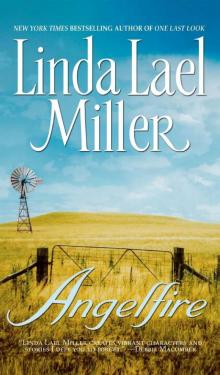 Angelfire
Angelfire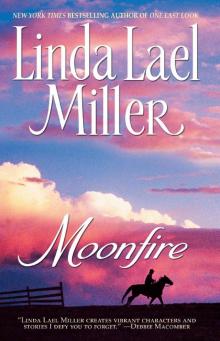 Moonfire
Moonfire The Yankee Widow
The Yankee Widow The Cowboy Way
The Cowboy Way Country Strong--A Novel
Country Strong--A Novel Forever and a Day
Forever and a Day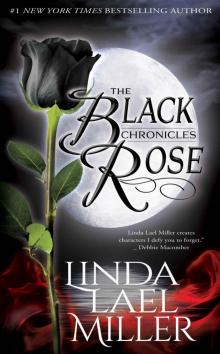 The Black Rose Chronicles
The Black Rose Chronicles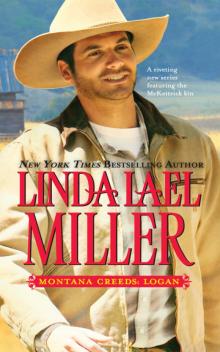 Montana Creeds: Logan
Montana Creeds: Logan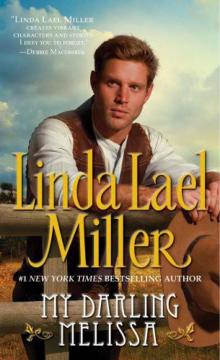 My Darling Melissa
My Darling Melissa Skye
Skye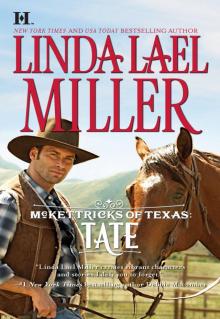 McKettricks of Texas: Tate
McKettricks of Texas: Tate Springwater Seasons
Springwater Seasons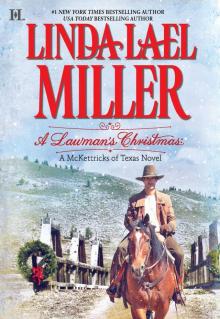 A Lawman's Christmas
A Lawman's Christmas Sierra's Homecoming
Sierra's Homecoming![Parable, Montana [4] Big Sky Summer Read online](http://i1.bookreadfree.com/i/03/22/parable_montana_4_big_sky_summer_preview.jpg) Parable, Montana [4] Big Sky Summer
Parable, Montana [4] Big Sky Summer One Last Weekend
One Last Weekend A Stone Creek Collection, Volume 2
A Stone Creek Collection, Volume 2 Tonight and Always
Tonight and Always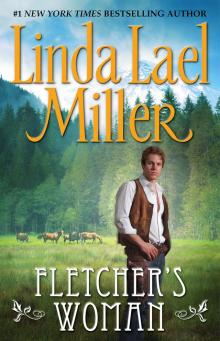 Fletcher's Woman
Fletcher's Woman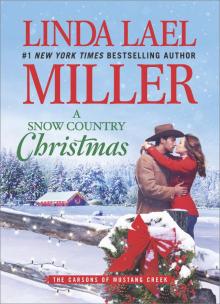 A Snow Country Christmas
A Snow Country Christmas The Last Chance Cafe
The Last Chance Cafe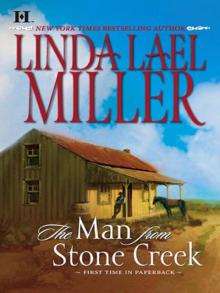 The Man from Stone Creek
The Man from Stone Creek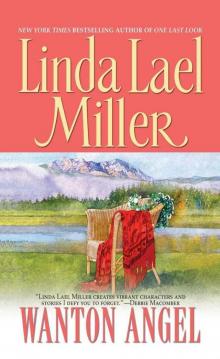 Wanton Angel
Wanton Angel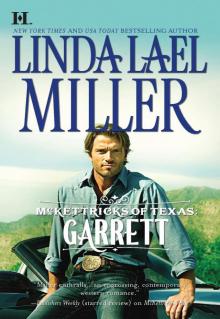 McKettricks of Texas: Garrett
McKettricks of Texas: Garrett Memory's Embrace
Memory's Embrace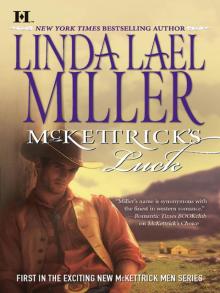 McKettrick's Luck
McKettrick's Luck Pirates
Pirates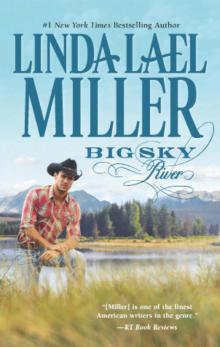 Big Sky River
Big Sky River Willow: A Novel (No Series)
Willow: A Novel (No Series)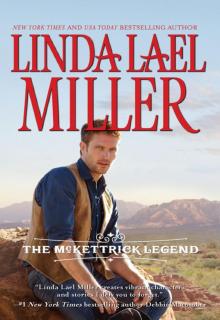 The McKettrick Legend: Sierra's HomecomingThe McKettrick Way (Hqn)
The McKettrick Legend: Sierra's HomecomingThe McKettrick Way (Hqn) Glory, Glory: Snowbound with the Bodyguard
Glory, Glory: Snowbound with the Bodyguard Two Brothers
Two Brothers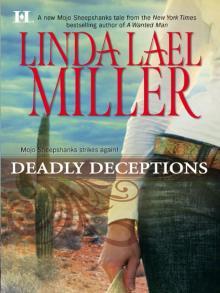 Deadly Deceptions
Deadly Deceptions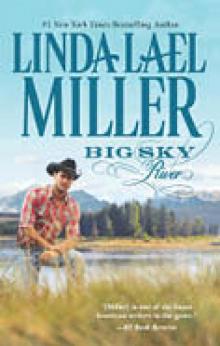 Big Sky Secrets
Big Sky Secrets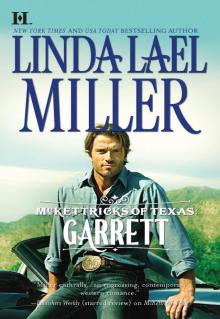 Garrett
Garrett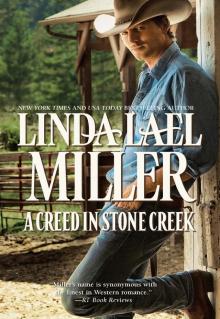 A Creed in Stone Creek
A Creed in Stone Creek Megan
Megan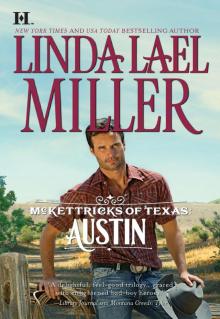 McKettricks of Texas: Austin
McKettricks of Texas: Austin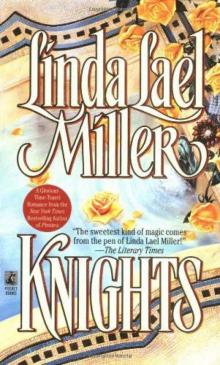 Knights
Knights High Country Bride
High Country Bride More Than Words Volume 4
More Than Words Volume 4 Glory, Glory
Glory, Glory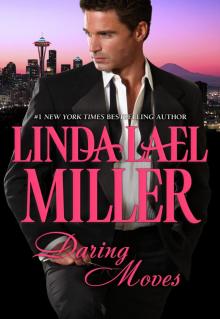 Daring Moves
Daring Moves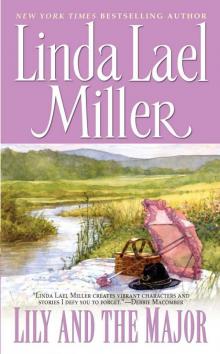 Lily and the Major
Lily and the Major Courting Susannah
Courting Susannah Banner O'Brien
Banner O'Brien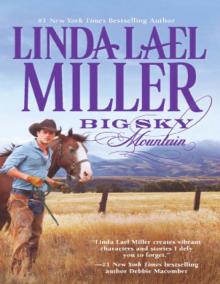 Big Sky Mountain
Big Sky Mountain Linda Lael Miller Bundle
Linda Lael Miller Bundle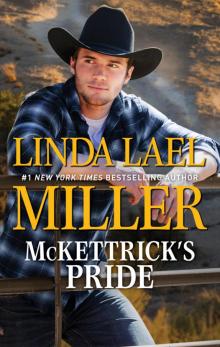 McKettrick's Pride
McKettrick's Pride A Stone Creek Collection Volume 1
A Stone Creek Collection Volume 1 A Wanted Man
A Wanted Man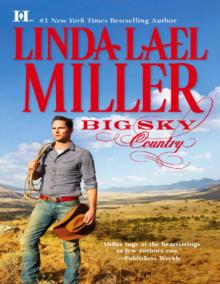 Big Sky Country
Big Sky Country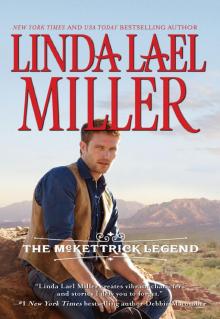 The McKettrick Legend
The McKettrick Legend Christy
Christy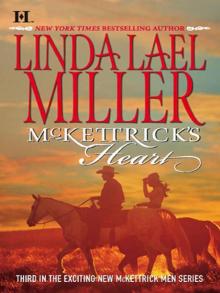 McKettrick's Heart
McKettrick's Heart Resurrection
Resurrection Arizona Heat
Arizona Heat Secondhand Bride
Secondhand Bride Snowflakes on the Sea
Snowflakes on the Sea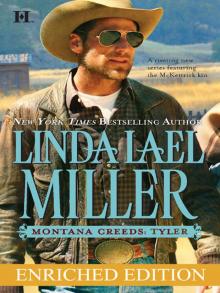 Montana Creeds: Tyler
Montana Creeds: Tyler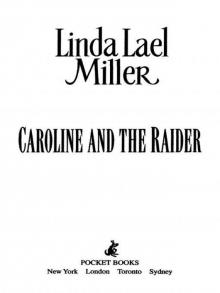 CAROLINE AND THE RAIDER
CAROLINE AND THE RAIDER A Proposal for Christmas: State SecretsThe Five Days of Christmas
A Proposal for Christmas: State SecretsThe Five Days of Christmas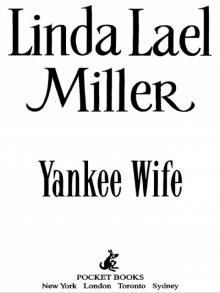 Yankee Wife
Yankee Wife Linda Lael Miller Montana Creeds Series Volume 1: Montana Creeds: LoganMontana Creeds: DylanMontana Creeds: Tyler
Linda Lael Miller Montana Creeds Series Volume 1: Montana Creeds: LoganMontana Creeds: DylanMontana Creeds: Tyler The Christmas Brides
The Christmas Brides McKettricks Bundle
McKettricks Bundle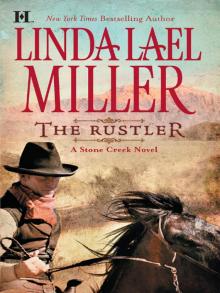 The Rustler
The Rustler Here and Then
Here and Then Only Forever
Only Forever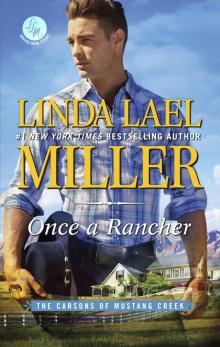 Once a Rancher
Once a Rancher The 24 Days of Christmas
The 24 Days of Christmas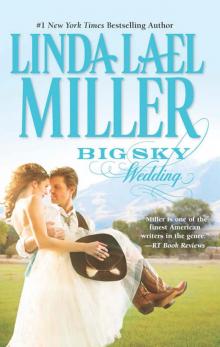 Big Sky Wedding
Big Sky Wedding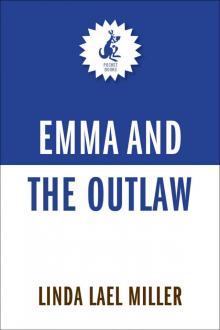 Emma and the Outlaw
Emma and the Outlaw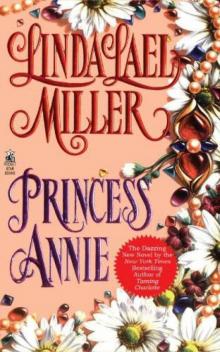 Princess Annie
Princess Annie Wild About Harry
Wild About Harry That Other Katherine
That Other Katherine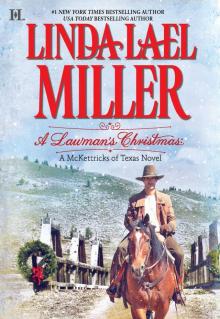 A Lawman's Christmas: A McKettricks of Texas Novel
A Lawman's Christmas: A McKettricks of Texas Novel Just Kate: His Only Wife (Bestselling Author Collection)
Just Kate: His Only Wife (Bestselling Author Collection)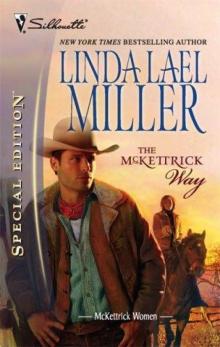 The McKettrick Way
The McKettrick Way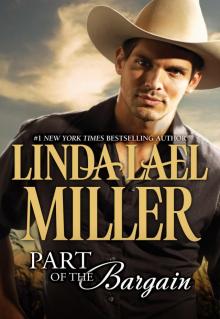 Part of the Bargain
Part of the Bargain Taming Charlotte
Taming Charlotte Holiday in Stone Creek
Holiday in Stone Creek One Last Look
One Last Look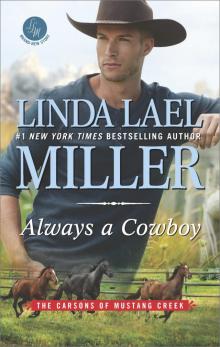 Always a Cowboy
Always a Cowboy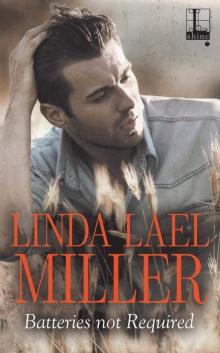 Batteries Not Required
Batteries Not Required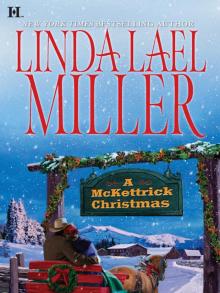 A McKettrick Christmas
A McKettrick Christmas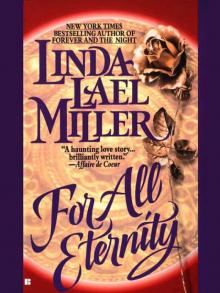 For All Eternity
For All Eternity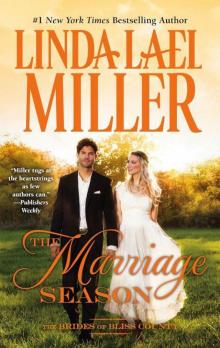 The Marriage Season
The Marriage Season Corbin's Fancy
Corbin's Fancy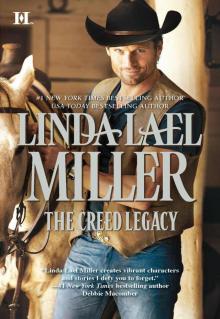 The Creed Legacy
The Creed Legacy Springwater Wedding
Springwater Wedding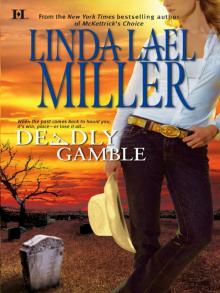 Deadly Gamble
Deadly Gamble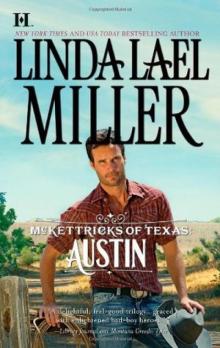 Austin
Austin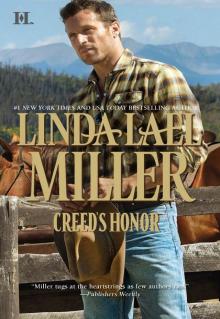 Creed's Honor
Creed's Honor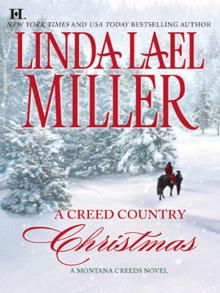 A Creed Country Christmas
A Creed Country Christmas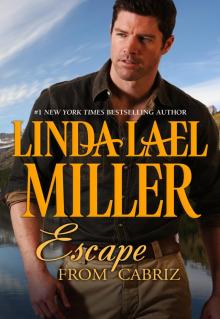 Escape from Cabriz
Escape from Cabriz There and Now
There and Now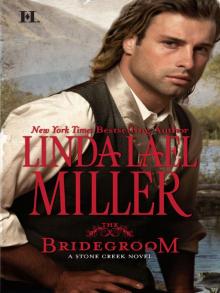 The Bridegroom
The Bridegroom State Secrets
State Secrets Bridget
Bridget